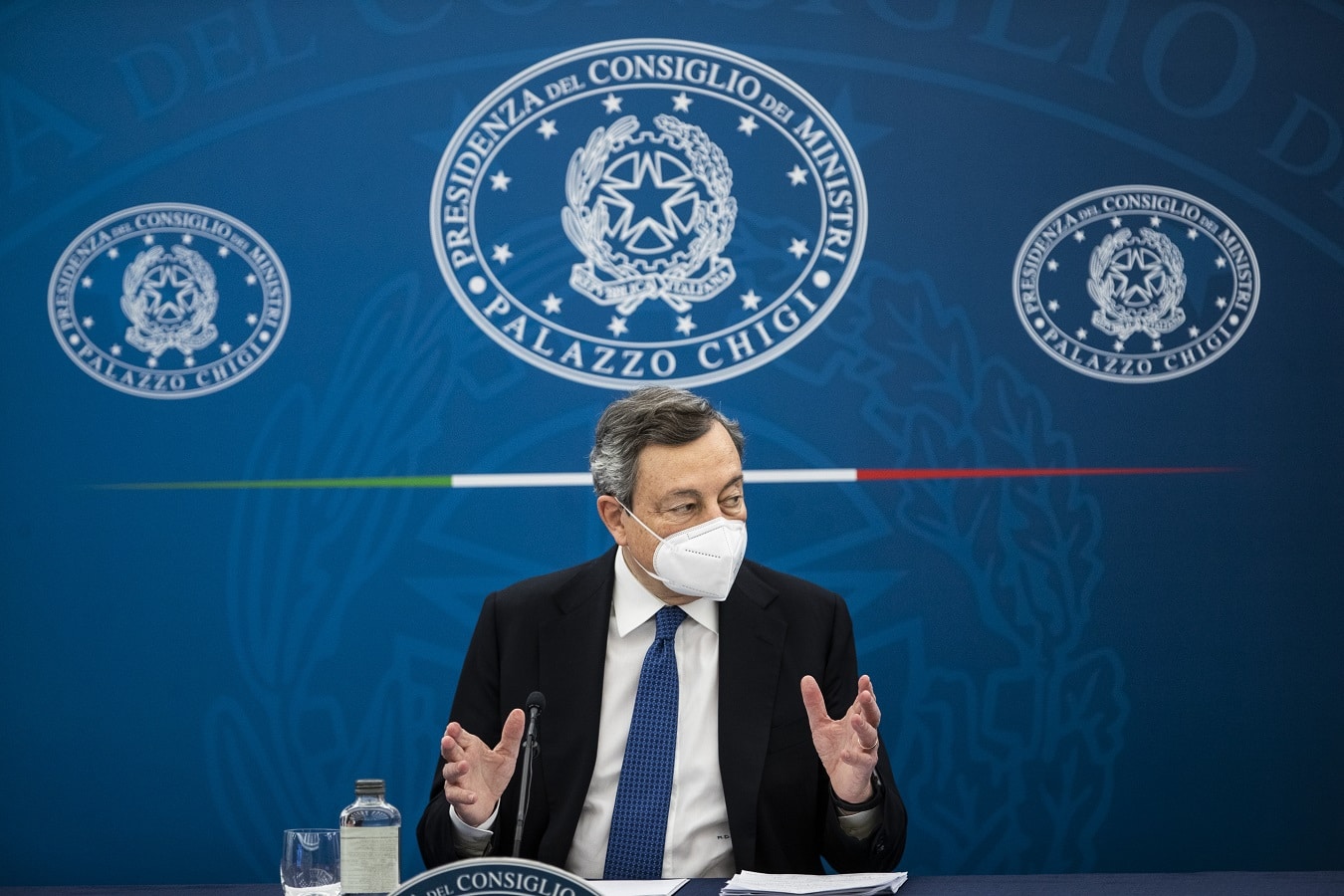The government exerted its “golden power” to prevent an Italian telco from acquiring tech from Huawei and ZTE for the second time. The move signals Italy’s growing caution with regards to Chinese-built 5G tech
Mario Draghi’s government used its “golden power” – i.e. lawful intervention in the dealings of private businesses for the sake of national security – for the second time in the space of a few weeks, to prevent the acquisition of Chinese telecoms tech.
The measure was once again aimed at averting the purchase of Chinese-manufactured 5G network components. It was directed at Linkem, an Italian telco company specialised in extending cellular signal in remote areas, and its attempt to purchase standalone 5G equipment from the Chinese tech firms Huawei and ZTE.
The two companies are banned in the US, as they stand accused of espionage on behalf of the Chinese state by Washington; Beijing rejects that accusation. The Italian Parliament’s intelligence committee (COPASIR) also recommended excluding them from the country’s budding 5G network in December 2019.
The government’s decree exerting its golden power is dated March 25th, one day after the previous instance of its use – which was aimed at another Italian telco company and its order of ZTE and Askey (a Taiwanese company) equipment – was notified to Parliament.
Conceivably, Mr Draghi’s executive – which is only two months old – also strove to put some distance between itself and Huawei when key political figures, including minister Mariastella Gelmini, cancelled their attendance at a Huawei-centric event at the eleventh hour on March 23rd.
In his inaugural speech, the PM had made it clear that Italy’s digital transformation process would run on “European and Atlanticist” tracks. That was echoed by Vittorio Colao, minister for the digital transition, who told the Senate that Italy’s “digital transition, [intended] as a competitive and geostrategic industrial strategy” must be “clearly European and Atlanticist.”
The Italian government’s overarching geopolitical field choice is shining through these latest two golden power measures. The previous government had also taken similar steps with regards to Chinese 5G, albeit more cautiously and never manifesting this executive’s sheer will to make sure that Italy’s international positioning seeps into domestic regulation.
These exertions of the golden power are meant to complement Italy’s digital cybersecurity perimeter, which is currently being built under the secret service’s oversight, and will help secure the country’s network from future threats under the watchful eye of intelligence services.
As of today, a key measure is to prevent potentially dangerous equipment from being installed in the network, an occurrence that would frustrate these efforts to shore up cybersecurity. Which is exactly what happened with the March 25th golden power decree.








